
In order to make workforce comparisons, we need to create categories of similar jobs and skills. It’s useful to know that “Lawyer” & “Attorney” are similar job titles and “SQL” & “Databases” are similar skills so that we can better categorize them. But what about understanding which jobs or skills are the most different from each other? Presumably, there would be some compensation benefits to one’s job or skill uniqueness?
Fundamentally, a job is a bundle of activities or tasks. And a skill is an input into completing those same activities. Using this structure, we find text that describes the activity content of jobs and skills, and use that text to represent each in a mathematical space. Reducing the dimensionality of the space and using a distance metric, we can determine which occupations are further away from other occupations, and which ones are the closest to others. Below are the five most unique and the five least unique occupations:
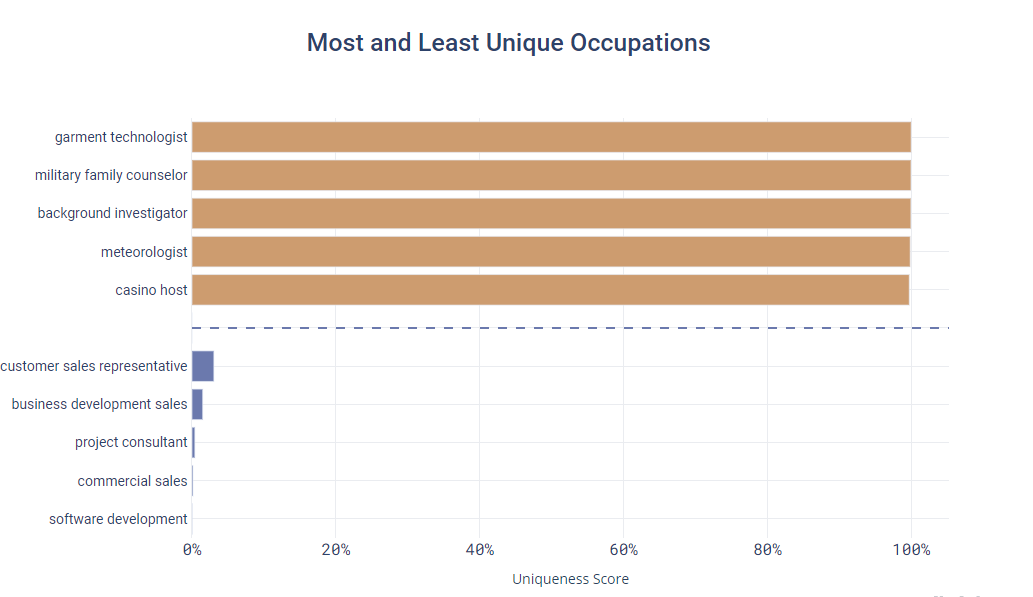
If you would like to learn more about our occupation landscape, here is a plot showing the top 10k job titles.
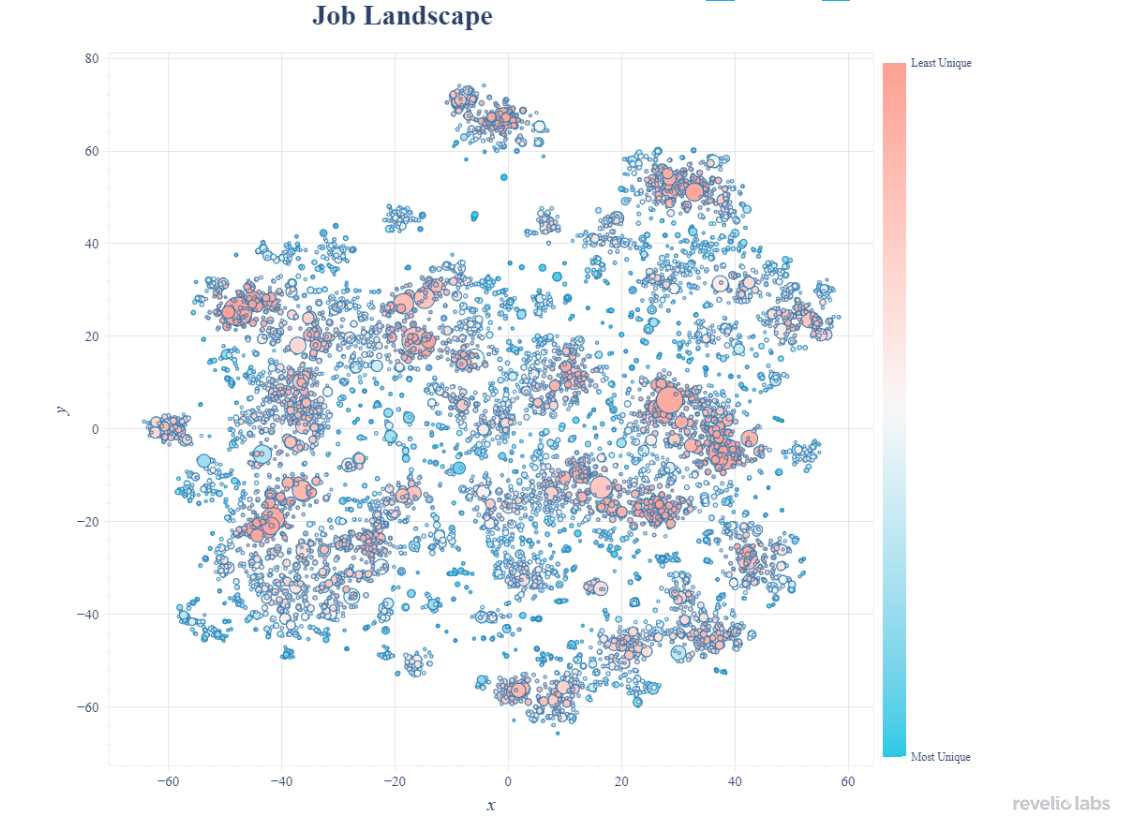
But what does it mean to have a unique occupation? The composition of activities performed in that occupation is unlike anything else in the labor market. In other words, there is little demand for them. Therefore, when we compare occupational uniqueness and salaries, we find that more unique occupations pay a lower salary.
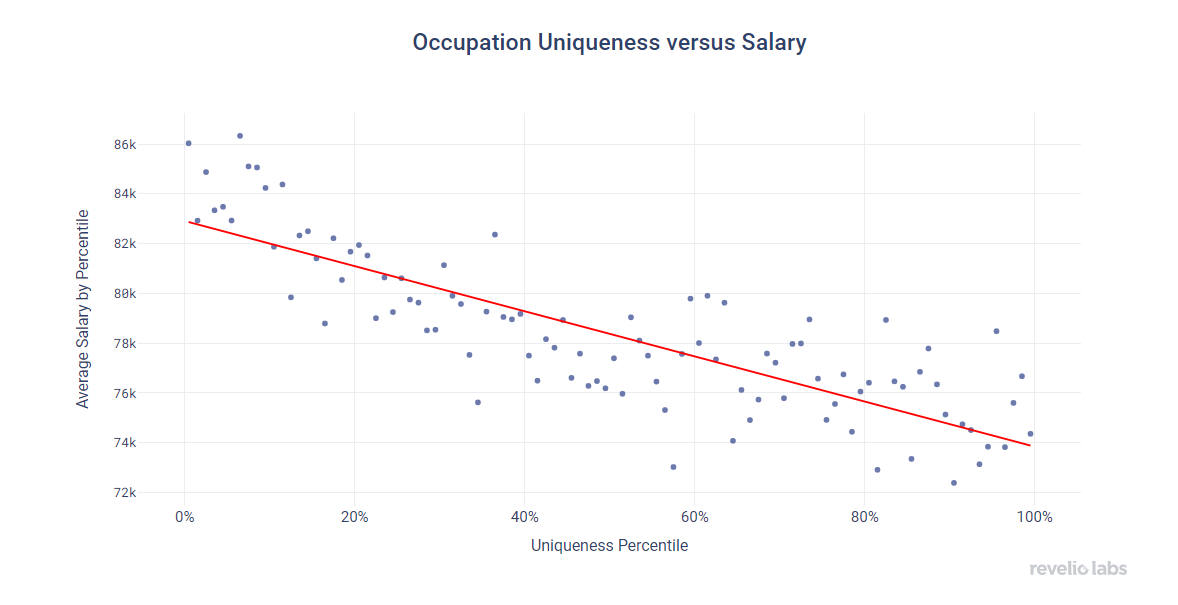
What about skills, which are the inputs to completing the activities in occupations? Here are the five most unique and least unique skills:
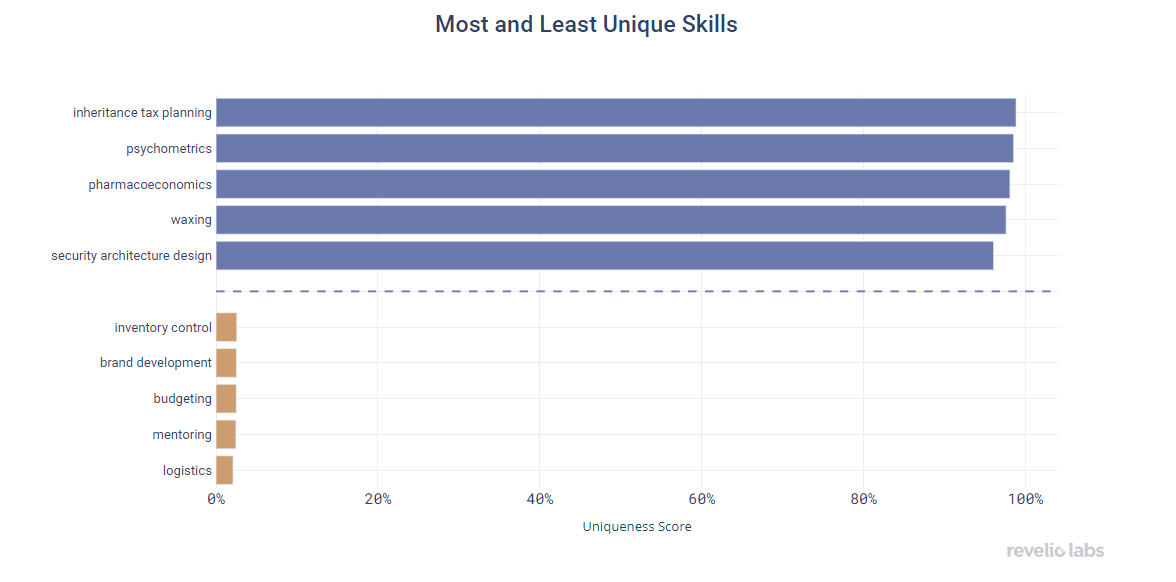
Unlike occupations, unique skills have a salary premium for specialization. Since unique skills are unlikely to be transferable, individuals holding them receive higher salaries to offset the risk of no longer needing their unique skill.
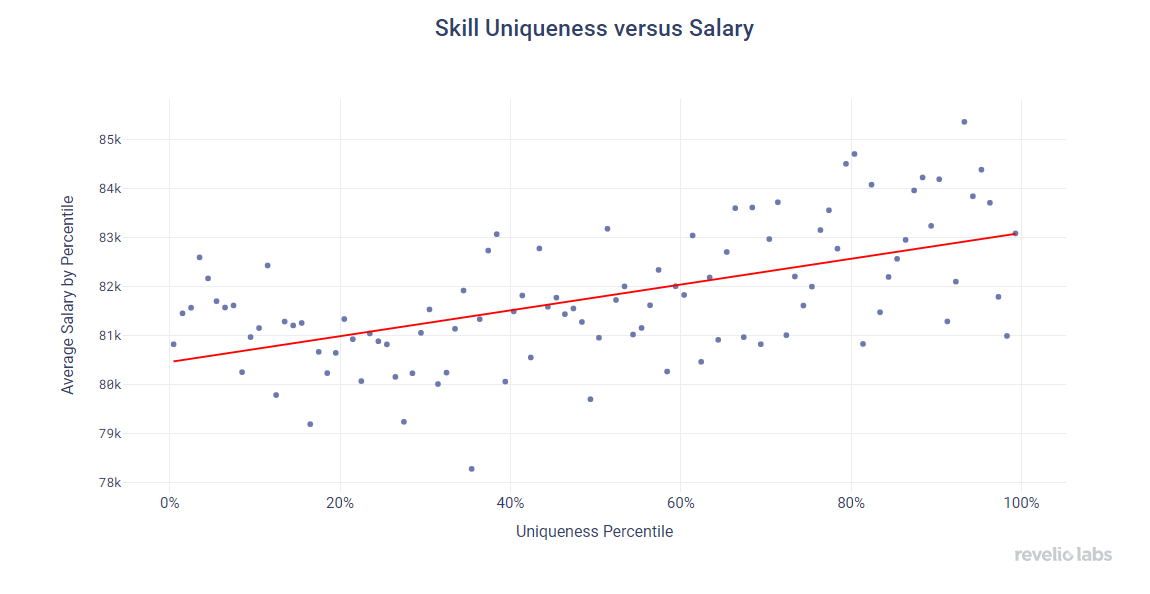
To learn more about the data behind this article and what Revelio Labs has to offer, visit https://www.reveliolabs.com/.







Sign up to receive our stories in your inbox.
Data is changing the speed of business. Investors, Corporations, and Governments are buying new, differentiated data to gain visibility make better decisions. Don't fall behind. Let us help.



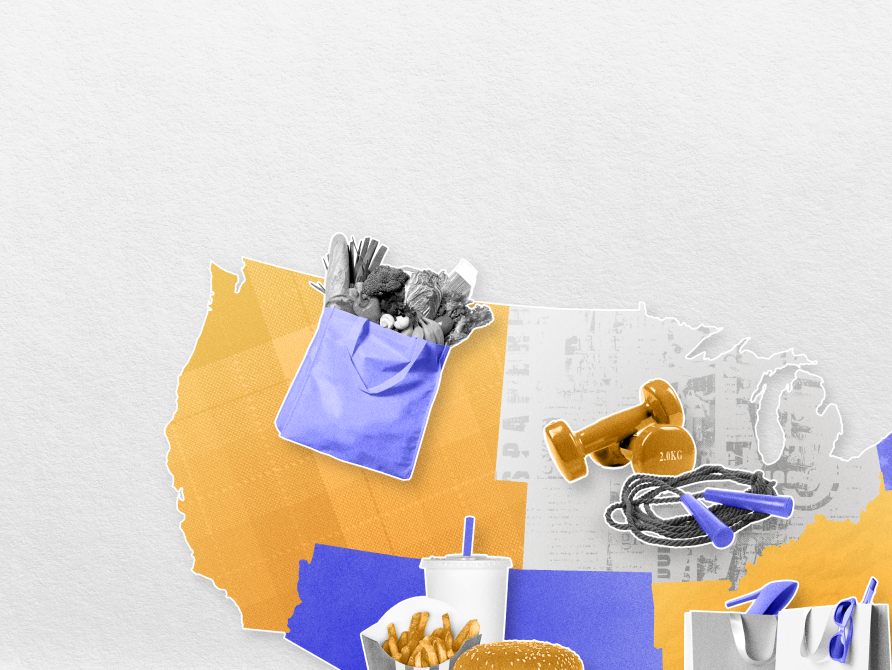
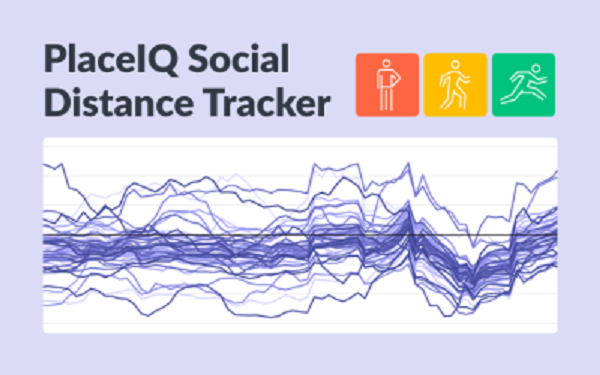
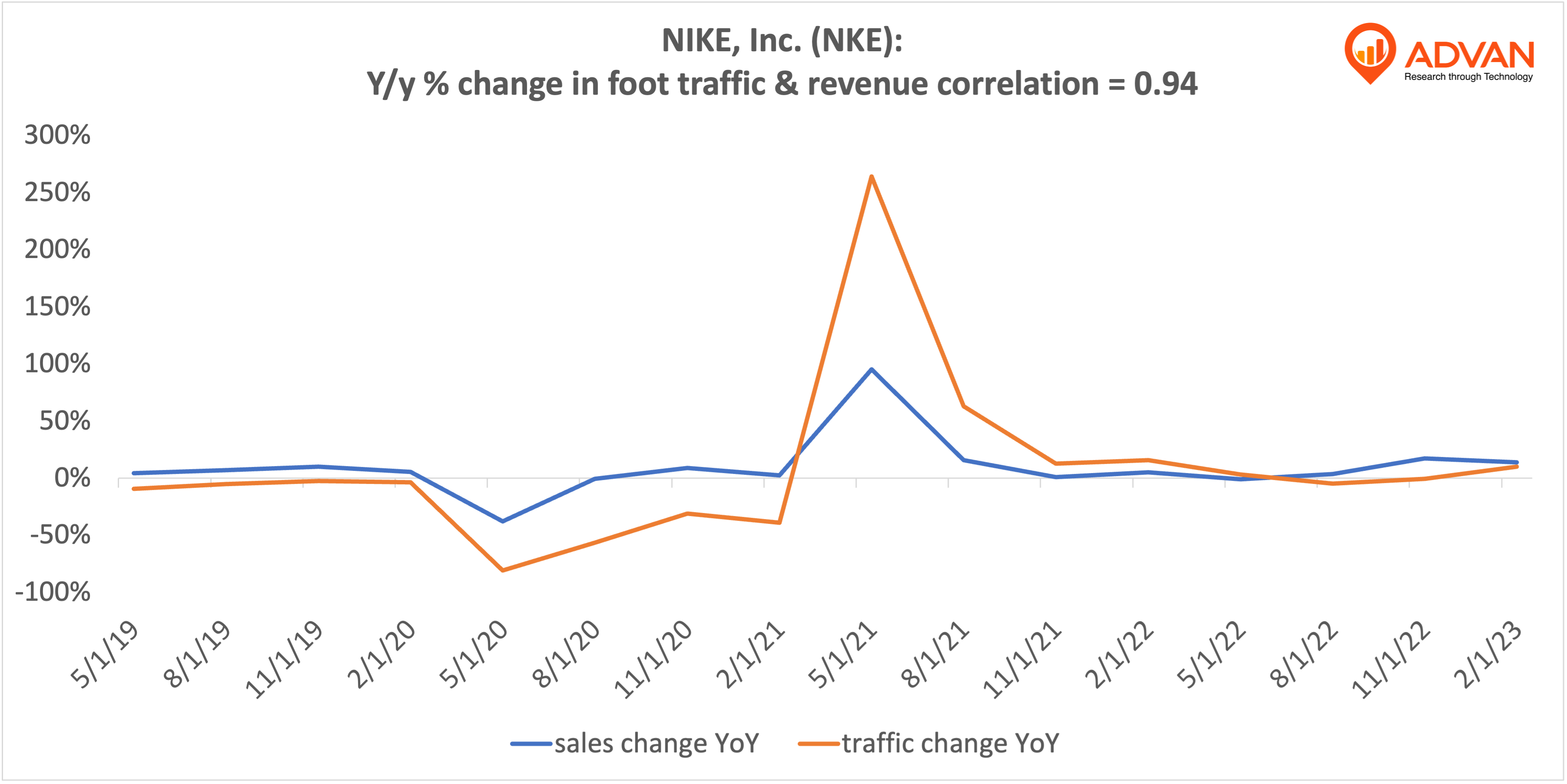







Sign up to receive our stories in your inbox.
Data is changing the speed of business. Investors, Corporations, and Governments are buying new, differentiated data to gain visibility make better decisions. Don't fall behind. Let us help.





